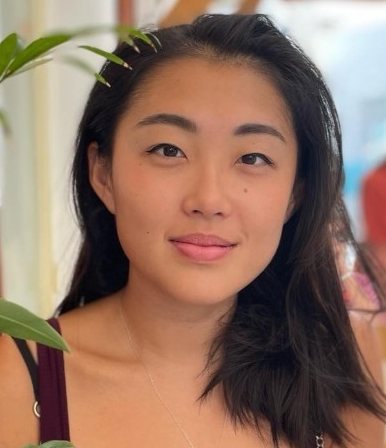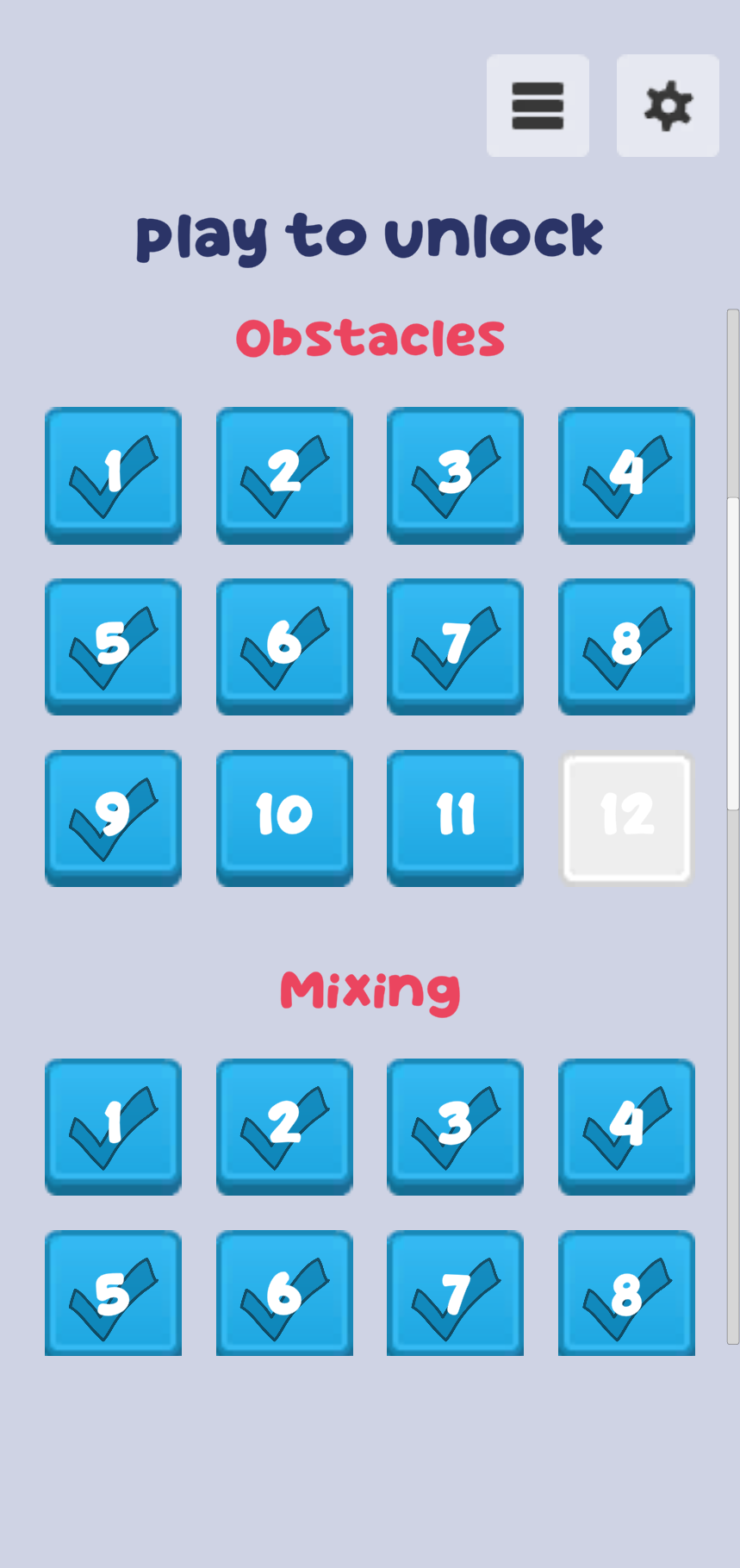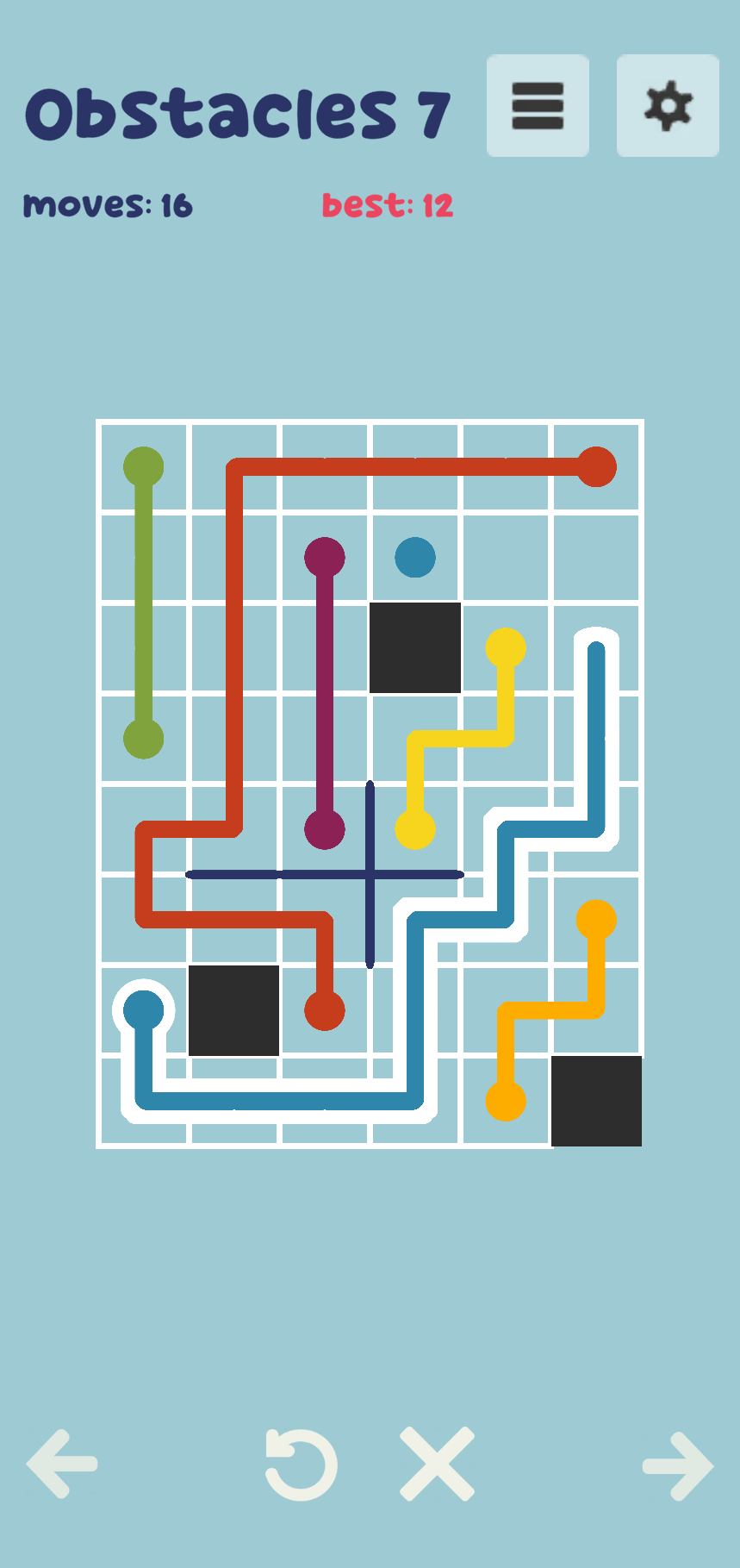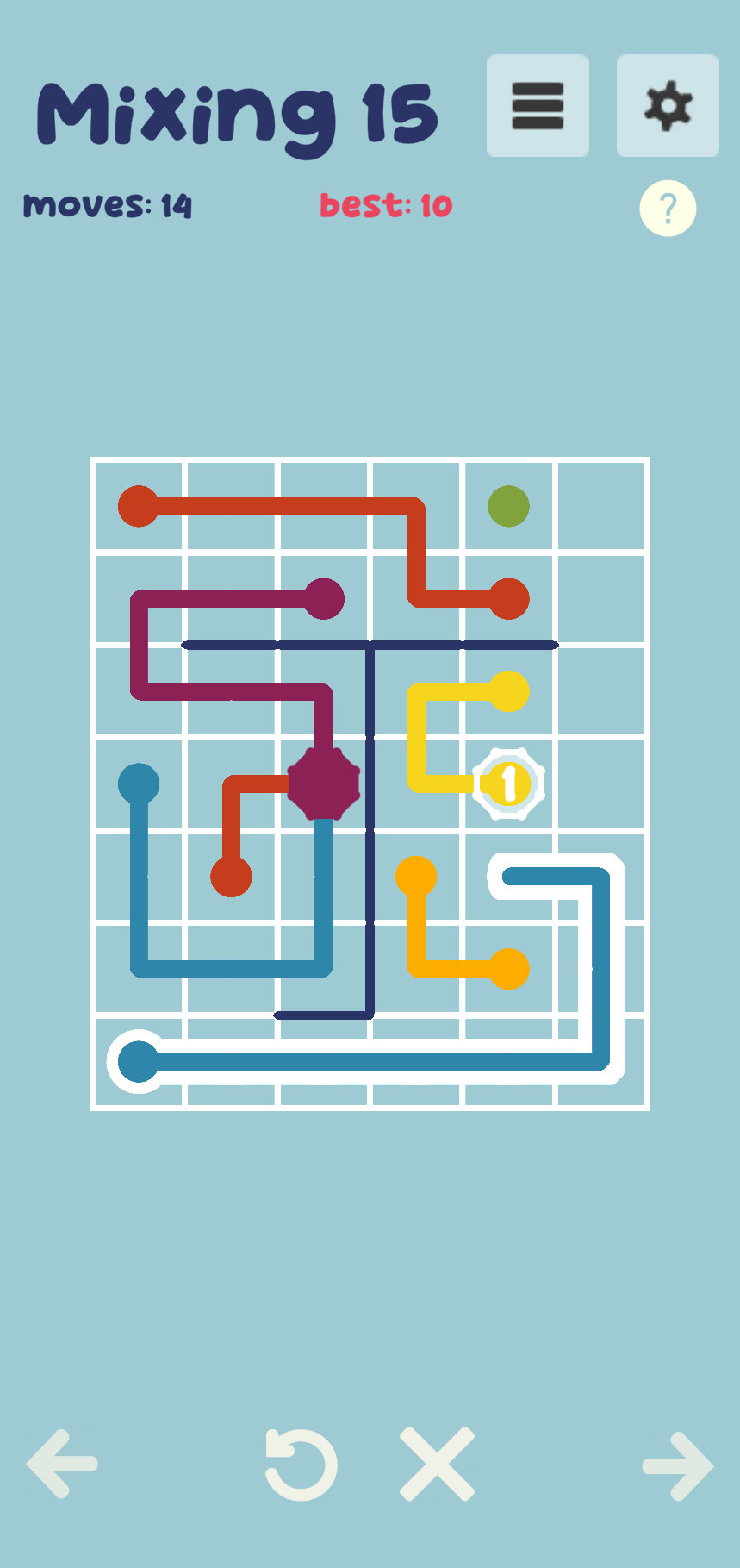educational VR musical puzzle game
I studied violin for 8 years but struggled to hear subtle differences between tones, making progress difficult. Recently, I was inspired by the sensory phenomenon of synesthesia to create a game that would use more senses to train the ear. Whenever a player hears a note, a corresponding colour ripples in front of their eyes, simulating a synesthetic audio-visual link and building the ability to differentiate between notes. Players rearrange bars of sheet music and shift their pitch up or down to replicate famous melodies. The visuals were made using shaders I coded myself after reading research on synesthetes' self-reported experiences [2013], and the game's mechanics were loosely inspired by the Taneda method.
challenging colour-blending mobile game
I love puzzles but was frustrated by the simplicity of most puzzle games available on the App Store. Drawing on my interest in color theory, I created a mobile game in Unity called Splish, where players mix primary colors and split secondary colors to connect dots and fill in a grid. The result is fiendishly difficult, educational, and visually engaging, making Splish the #2 Paid Puzzle Game and #11 Paid Game on the Apple App store in May 2023.
social (media) experiment
coords.me is a concept for a spatial social media platform. I built coords.me with Henry Weikel out of nostalgia for a time before social platforms had become homogenised around timelines optimised for algorithmic recommendations and advertising. Coords are small, simple canvases for real-time content, with no post history, mentions, or comments. The location of each user's coord is spatially fixed in a two dimensional grid, encouraging users to form a “mental map” of the platform, organise themselves into communities, and discover new pockets of unexpected content along the journey.
At the age of 13, I wrote a series of popular romance novels on Wattpad that were read a combined 60 million times. My most successful novel, The Billion Dollar Girl, challenged how young women (including myself) thought about romance, receiving 28 million reads and making me the most read author on the platform at the time.
software and data
Software Engineer at Amazon Ring
I work as an engineer in the Computer Vision department of Amazon Ring, productionizing on-device AI models for millions of customers.
I investigated the causal effect of 20mph zones on traffic accidents in London using propensity score methods for my Mathematics MSci Dissertation at Imperial College London, which received First Class Honours.
I used Jupyter Lab and Python to investigate astronauts/missions data from the perspective of a new space agency.
Luxi Liu
I am a full-stack software engineer on the Computer Vision Team at Amazon Ring with an MSci in Mathematics from Imperial College London. I enjoy building things in many mediums, leading me to write fiction for tens of millions of readers and develop a number of popular puzzle games.




